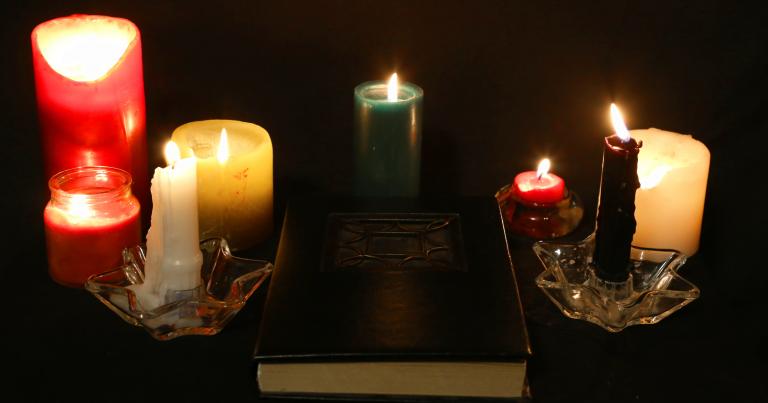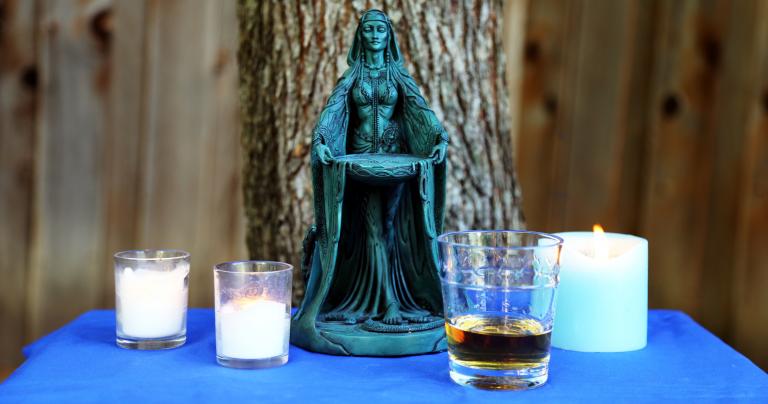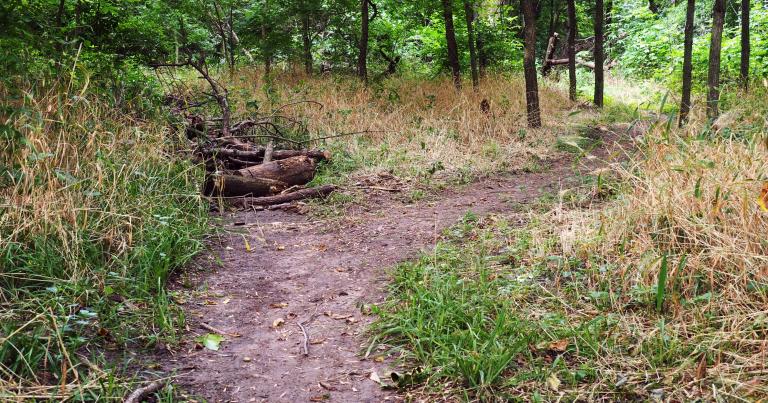Gwen on the 3 Pagans and a Cat blog has a very good post titled Solitary Self-Initiation or Dedication. Does It Matter? It’s not particularly long and if you’re thinking about a self-initiation or dedication, it’s well worth your time to read, particularly around the questions of when you can and can’t self-initiate.
Rather than simply elaborate on Gwen’s post, I’d rather offer my thoughts from my perspective as a Pagan polytheist.
And I can summarize those thoughts by saying that initiation is never required, but it is often helpful.
What self-initiation can’t do
Let’s begin with what should be obvious but often isn’t: self-initiation can’t make you part of a closed tradition. Groups and traditions decide who gets in and how – and they’re under no obligation to take you in just because you really really want to be in.
If you want to be a Gardnerian Wiccan you have to find a Gardnerian Wiccan to initiate you – there is no other way. Most OBOD member self-initiate, but they do so using OBOD’s ceremonies with OBOD’s approval. If you stole my collection of gwersi and performed the initiation ceremonies, neither the OBOD office nor the membership would recognize you as an OBOD initiate. You have to do it right or it’s not valid.
Also obviously, self-initiation can’t provide secret knowledge. Whether in-person initiations transmit secret knowledge depends on the group. While I’ve received secret knowledge in initiations, it’s always been things like explanations of symbols and names of allies – never life-changing information. What I’ve learned that’s been life-changing has been done in the work that prepared me for initiation. And that’s something you can do on your own. Indeed, there is no other way.
Self-initiation can’t test you in ways you don’t expect. I’ve had one major initiatory ordeal in my life, though it was less of a test and more of a learning experience. Some initiations teach through shock and stress – it’s very difficult to do that on your own, because you always know what’s coming next… and you control if you continue or not.
Initiation in the context of a polytheist religion
Most of the wider Pagan community’s ideas about initiation come from Wicca (and through it from Freemasonry), where initiation is required. Much of our thinking around self-initiation comes from Raymond Buckland, who invented a solitary witchcraft tradition that didn’t require in-person initiation, and thus made it open to those who couldn’t find an initiate to train and initiate them. Today, solitary practitioners make up the majority of witches and Wiccans.
Much virtual ink has been spilled arguing about who is and isn’t a witch. Various witchcraft traditions have their own definitions and qualifications, and most – but not all – witches I know have been initiated in one way or another at one time or another. But if you practice witchcraft then you’re a witch, initiation or not.
Polytheism is not Wicca and it’s not witchcraft, even though many practitioners are all of the above. And some polytheist traditions do practice initiation, going back to the Eleusinian Mysteries.
But you don’t need initiation to worship the Gods. Respond to a call, or just pick Someone – if you honor a deity, most times They’ll respond. Perhaps not in the way you expect, but they will usually respond. And if They don’t, you can move on to Someone else. Or just continue worshipping Them – it is always good to worship the Gods.
Self-initiation can be a dedication
Gwen’s post was titled “Solitary Self-Initiation or Dedication.” Many initiations, particularly those that actually occur in the initial phase of a spiritual journey, would be better described as dedications, or perhaps, consecrations. You’ve taken some preliminary steps and some exploratory steps, and now you’re ready to declare “this is what I’m going to do.”
Why the need for the ceremony? Why not just start doing it? There’s something to be said for that approach, particularly in an environment where too many people read one book and then start calling themselves a witch or Druid or a high priest of some deity.
But there is value in making a statement. There is value in making a commitment, in saying “I dedicate myself to Cernunnos and I promise to honor Him, to embody His virtues, and to promote His values.” While this is most meaningful in a public setting where there are people who can hold you accountable, if you know you said it, you’re far more likely to carry through with it. Doing it in a ceremonial setting makes it that much more meaningful… and that much harder to forget.
Just remember that oaths are oaths regardless of the context in which they’re made. Do not promise what you cannot or will not do.
You can cross a necessary line with self-initiation
I think this is the greatest value of self-initiations, particularly for those of us who grew up in conservative religions.
There’s a strong element of identity in religion. It’s not about what you believe (for most religions, belief is of minor importance), it’s about what you do, who you are, and whose you are. Religion is about what binds us together: stories and songs, virtues and values, days of celebration and days of obligation. These things have deep hooks – they’re hard to break. Last week I found myself remembering a hymn I haven’t heard in over 35 years – I still knew every word.
Breaking the hold these old ideas and old ways of thinking have on us is hard. It rarely happens all at once and usually takes years of dedicated work. But an initiation – including a self-initiation – can provide a significant one-time boost to the process.
Some traditional witchcraft initiations involve a Christian blasphemy, such as saying the Lord’s Prayer backwards. I’m not fond of intentionally insulting any legitimate religion (I’ll insult the Westboro Baptist Church all day long, but that’s not the same thing). But when you swear an oath to a Pagan God, you’ve made it clear – to yourself and to the wider spiritual world – that you’ve switched teams. That makes it much less likely you’ll abandon your new path.
Plus, if you’re really serious about your initiation or dedication, and the God or Gods involved accept your oaths, you’ve now got Them on your side. That makes it less likely you’ll want to abandon your new path.
There is value in crossing a line, and self-initiation can facilitate that process.
Ordeals in self-initiation
It’s hard to do an ordeal in a self-initiation. Hard, but not impossible.
You can’t surprise yourself, or present yourself with some unsolvable puzzle you don’t already know is unsolvable. But you can test yourself, or present yourself with a task that is difficult and unpleasant… but still necessary. Unnecessary hardships are just hazing, even if you do it to yourself.
Perhaps the simplest and most traditional thing you can do is to keep an all-night vigil. Stay up from dusk till dawn, tending a fire and contemplating your Gods and your path.
Go out into the wilderness on your own. My last initiation involved a short solitary hike into unfamiliar territory, some place where it was possible for me to get lost. Getting lost wasn’t the point, and I didn’t. The point was being deep in the forest where getting lost was a possibility.
There are safety concerns with being out on your own, but if you can’t fail, it’s not really an ordeal.
If you do fail, it’s not the end of your journey… unless you give up.
Ultimately, the Gods and spirits are our initiators
We can stand up or kneel down and speak our oaths. We can test ourselves or submit to testing by others. We can perform deep and ancient ceremonies… or at least, our reimagining of what ancient ceremonies would look like in the 21st century. By themselves, these things have value and if you feel the need I highly recommend you do them.
But a true life-changing initiation requires a connection with our Gods or other spiritual allies. If there is to be an ecstatic experience it will come from them or not at all.
And many times they don’t wait for a ritual.
I’ve had multiple initiations and several ritual ordeals in my life. I’ve also had several ordeals in ordinary life. Not just bad things happening – just because your life sucks doesn’t mean you’re going through an ordeal. Rather, these were difficult and unpleasant things that led me to understand where my true calling lies – and where it doesn’t.
Initiation does not begin with the start of a ceremony. Initiation begins with the request for initiation or with the declaration of intent to work toward initiation. Start searching the internet for articles on initiation, start asking questions of those with the authority to initiate or with experience in self-initiations, stand up and say “I want in” and you will be heard.
Make yourself ready.
Blessings to you on your journey, where ever and however it initiates.




















